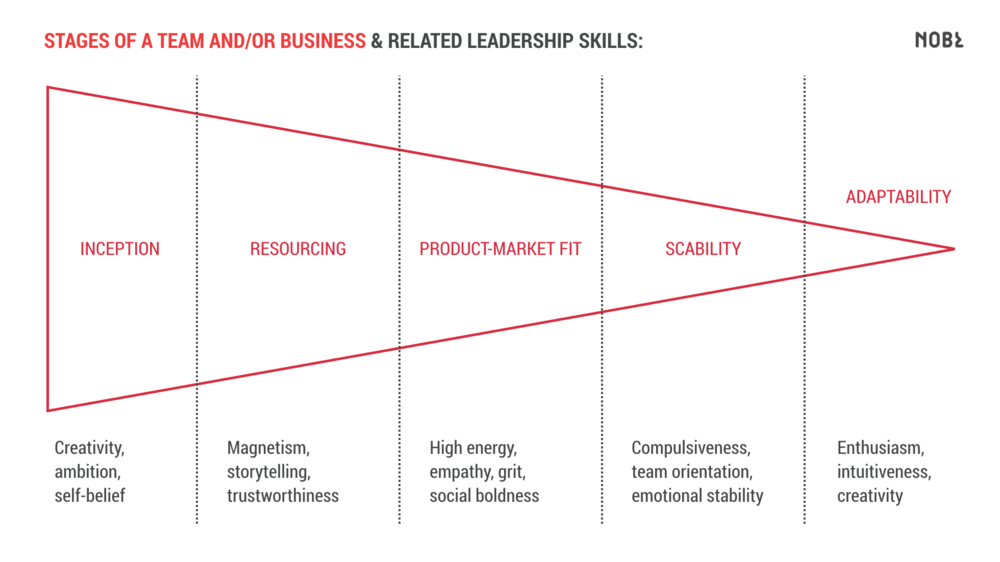When Nest founder and CEO Tony Fadell announced he was leaving the company to take a broader position within Alphabet (Google’s new holding company) he summed up his decision to leave saying,“I’m a guy who’s at the beginning of things. I don’t like to do maintenance mode. It’s not what gets me out of bed.”
Even before Fadell’s departure, there were accounts of cultural turmoil within the firm including abrasive management techniques and an exodus of workers that had joined the team from Dropcam and Google.
Fadell took a lot of flack for saying, “I don’t do maintenance mode,” but in many ways we should be celebrating the fact that a leader has enough self-awareness to understand when they no longer serve the company they created.

Each size and stage of your company (or for your team for that matter) demands a different set of leadership skills. Context matters. And leaders who manage the transition from one stage of the company to another rarely have the awareness or courage to admit their shortcomings. We’ve helped organizations of all sizes and stages, and we have directly helped a CEO of one of the fastest growing companies in history transition to a chairman role and onboard her successor. Here’s what we’ve learned:
At the outset, as a leader you need a spark of creativity and an unwholesome amount of self-belief.
To build a coalition and gather resources (whether that’s outside funding as a startup or executive cover as an intrapreneur), you need the ability to draw others to you, share your vision, and be worthy of their trust.
To find product-market fit before your resources are exhausted, you need overflowing energy, empathy for your customer, willingness to publicly fail, and the determination to get back up over and over again.
To scale your team/company and survive the process, you need a compulsive level of attention to detail, orientation to those around you that you must count on, and overall emotional stability as you uncover new challenges and counsel those around you through potential burnout.
If you survive scale (most companies/teams do not), then you must weather the slings and arrows of upstarts and outside change. You are likely leading a great number of people (holding wide-ranging roles) who count on your daily enthusiasm. Not every decision you make can be advised by data, so you’ll need a strong intuition and sense of creativity to know when market forces will require a leap rather than incremental change.
It sounds as if Fadell had the skills required to bring Nest fully through product-market fit. He was bold, decisive, high energy, and magnetic. Yet, as the company faced the challenges of scale, he failed to orient himself fully to his teams (and away from his own ambitions) and he clearly lacked the emotional stability that teams crave in the face of the tumultuousness of scale. From Fast Company:
Fadell’s reputation for being intense, very animated, and prone to raise his voice (not necessarily in anger) spilled over to push the Nest team. Carr wrote, “A meme is floating around the office comparing Fadell’s style to that of the Mountain in Game of Thrones, the towering brawler known for beating his opponents to a pulp.”
Looming above all of these leadership skills is the one superpower of 21st century leadership: self awareness. To lead effectively, you must be able to assess your fit-for-role among a larger context, both of the business and of the people around you. Fadell was the leader that Nest once needed but has outgrown–and with his departure he is recognizing that about himself. Marwan Fawaz will soon take over as CEO. Let’s hope that he’s the right person for the role.













